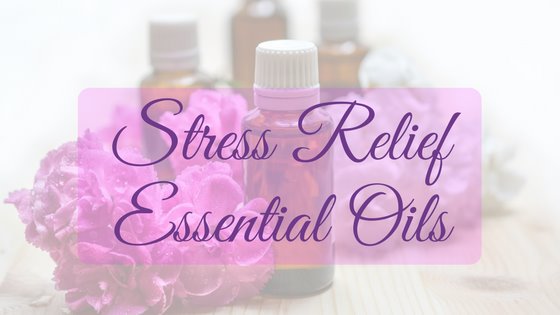
Benefits of Jasmine and lemongrass essential oils for stress and anxiety
Essential oils for anxiety and stress

The only 2 essential oils you need to cope with anxiety
Anxiety can be quite hard to handle, child or adult, when it hits it can be one of the most unpleasant feelings. All of us have faced the restlessness and panic of anxiety, some more than others. Statistics say 40 million people in the USA alone suffer from anxiety and 36.9% of those are treatable. Be it a stressful situation, early deadline or an undesirable circumstance, we have all had to deal with it, hating it thoroughly. This is where aromatherapy steps in as a lifesaver. The use of fragrances for health benefits was first recorded in Greece where flowers and spices were burnt for their refreshing and soothing aromas. Researchers show that a group of people recorded stress levels 12-30% lesser after being subjected to essential oils for aromatherapy, whereas the control group recorded only 3% lesser stress. Fragrances of myrrh and frankincense reduce the production of cortisol, which helps in reducing panic and fright. Aside from the famous lavender, we introduce you to two commonly overlooked fragrances that will help you deal with anxiety and nervousness better.
Jasmine essential oil benefits for anxiety- Rightly called the ‘gift of God’ or ‘nature's gift’, jasmine is an active relaxant and stress inhibitor. Native to the Indian subcontinent, jasmine is grown abundantly in tropical regions. Jasmine is idolized for its fresh and serene aroma which makes is a compelling component of prominent perfume brands. In fact, jasmine is grown in homes in the east for its surreal aroma in addition to its calming and relaxing effects. It is a common additive to ceremonies and festivals as it brings about feelings of peacefulness and balance. Jasmine is rich in components such as benzyl acetate and linalool which help in alleviating anxiety and nervousness. A recent study showed that jasmine oil promoted positivity, freshness and reduced negative feelings such as panic, restlessness, and drowsiness. Another study in 2006 showed that the fragrance of jasmine was helpful in aged care to treat and overcome anxiety, depression, stress, sleep disturbances by creating a feeling of rest and comfort. Jasmine shows positive effects on the neurotransmitter GABA, which is responsible for reducing anxiety and panic. The effects of jasmine on GABA makes it a credible anti-depressant and destresser, making it the prime chemical-free relaxant.
Lemongrass essential oil benefits for anxiety - Lemongrass is an origin to the Indian subcontinent and is grown popularly in Srilanka, China, and Thailand. The key constituents of lemongrass are myrcene, limonene, citral, and nerol, which help in reducing anxiety and agitation. Prized for its sharp, citrus aroma, lemongrass is widely used in aromatherapy to calm and rest the mind. Walk into a lemongrass cultivation or the sunny mountainsides where lemongrass thrives, and its cheerful aroma will help you forget to worry and stress, easing you to relax and transcend in its soothing aroma. Lemongrass is known to act as an anxiolytic (anxiolytic is a drug or a substance that helps alleviate anxiety and panic). A study in 2015 shows that the use of lemongrass by a set of 15 people showed a reduction in anxiety and nervousness when compared to a control group. Another study on rats showed that the rats subjected to lemongrass showed decreased nervousness and panic and also increased the sleeping time, thus acting as an anxiolytic and a mild sedative. The soothing and comforting scent of lemongrass calms the nerves and brings about a safe-space feeling.
Lemongrass tea benefits for mood swings and anxiety - A popular replacement for caffeine and beverages, lemongrass has gained popularity as a non-addictive relaxant for its effects on the moods and emotions. Add a few drops of edible lemongrass essential oil to your milk and sugar and enjoy its refreshing and inspiring aroma.
Aromatherapy for yoga - Aromatherapy and yoga go hand in hand in easing anxiety and agitation. Not only does yoga help in improving the health and mobility of the body, but it plays a major role in improving mental health. The breathing exercises and calming asanas are tricks that even young children follow when they encounter nervous situations. Incorporating aromatherapy with yoga proves to be an added advantage as it makes the yoga sessions more effective and fun. Here are 5 ways you can incorporate aromatherapy while practicing yoga
- Diffusers- Diffuse fragrances at regular intervals by using a hassle-free programmable diffuser, which not only ensures uniform distribution of the fragrance but makes sure the scent doesn’t become overpowering
- Potpourri- Using potpourri is the best way to make your home smell serene, yet without a smokey and stuffy atmosphere. Add 15-20 drops of essential oil to your potpourri and let it sit by your study.
- Direct inhalation- Apply 3-4 drops of essential oil to your palms and inhale directly. You could also add it to your temples or neck which would ensure a fresh whiff of fragrance as you continue with your asanas.
- Yoga mat- Add drops of oil to your mat or lavishly spray the oil on your mat. This ensures immediate relief and stronger aroma due to the proximity.
- Incense sticks- Incense sticks hold holy and religious values. Used to provide a calm and peaceful environment for prayer and meditation, incense sticks are a perfect addition to your yoga asanas.






Leave a comment
This site is protected by hCaptcha and the hCaptcha Privacy Policy and Terms of Service apply.